
University, Reimagined
The world changed, higher education didn't.
So we built something better.
Built from scratch. Informed by 100 years of what worked–and what didn’t.
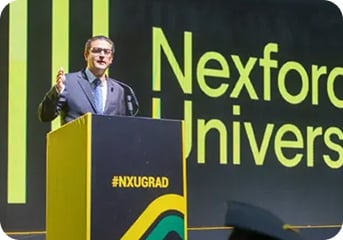
Nexford had no legacy systems to hold us back. No outdated traditions. That gave us the freedom to design a university that actually meets the demands of today’s world. Affordable, flexible, tech-driven, fast-moving, and shaped by AI.
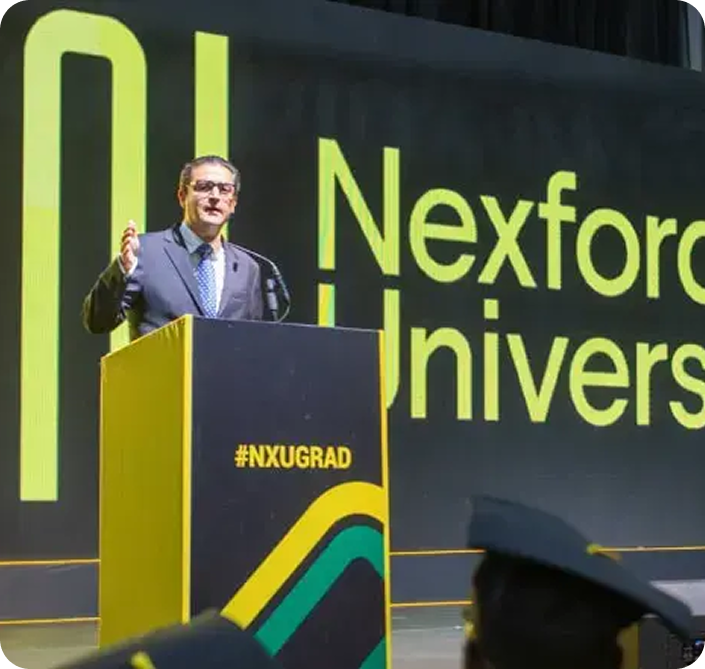
Why we launched Nexford



The Nexford solution.
Programs built alongside the companies you want to work for.
























NXU vs. traditional universities – See how we compare
| Nexford University | Traditional Universities | |
|---|---|---|
| Tuition Fees | Average Masters degree $5,000 - Average Bachelor’s degree $10,000 | Average Masters degree $60,000 - Average Bachelor’s degree $54,000 |
| Time to graduation | Graduate as fast as 9 months for Masters, and 24 months for Bachelor’s | Typically fixed length of min. 18 months for Masters and 4 years for Bachelor's. |
| Flexibility | Flexibly paced. Live sessions are optional. Courses can be completed in 1 or 2 months. | Required class hours at specific times and course length is typically fixed. |
|
Curriculum |
Competency-based, meaning focused on practical skills and real outcomes employers value. |
Most are theory-based with outdated curricula largely influenced by faculty, not employers. |
| Monthly payment | Yes, and the faster you graduate the less you pay. | Not available. |
| Learning Experience | Case studies, videos, reading material, interactive components and project-based assessments. | Typically lecture-based with long outdated reading material and extra fees for textbooks. |
The Nexford impact is real
studying at Nexford

studying at Nexford

Grow your career
- help Earth
Grow your career
- help Earth
Nexford University's institutional goals are to empower learners with:





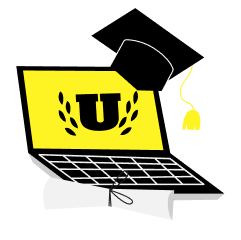






Our Mission
Our Mission
To enable greater social and economic mobility across the world by providing learners access to high-quality, affordable, dynamic online education that prepares them for the global workplace.
Our Vision: To grow a global community of productive, responsible contributors to society.
Hear from our alumni and their employers

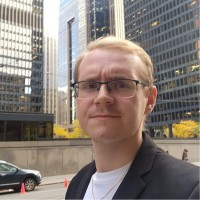

Thank you so much for the opportunity to be part of Nexford University. My education there significantly helped me advance my career. Additionally, my MBA has been successfully recognized as equivalent in my home country, Indonesia.
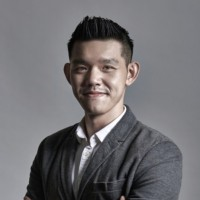
As a current MBA student at Nexford University, i like the flexile modality of study especially for full time employees, also the project-based learning approach with updated syllabuses, real case studies with top tech companies like Amazon, Tesla , Toyota, Apple...etc. and affordable at the same time for low middle income countries students.
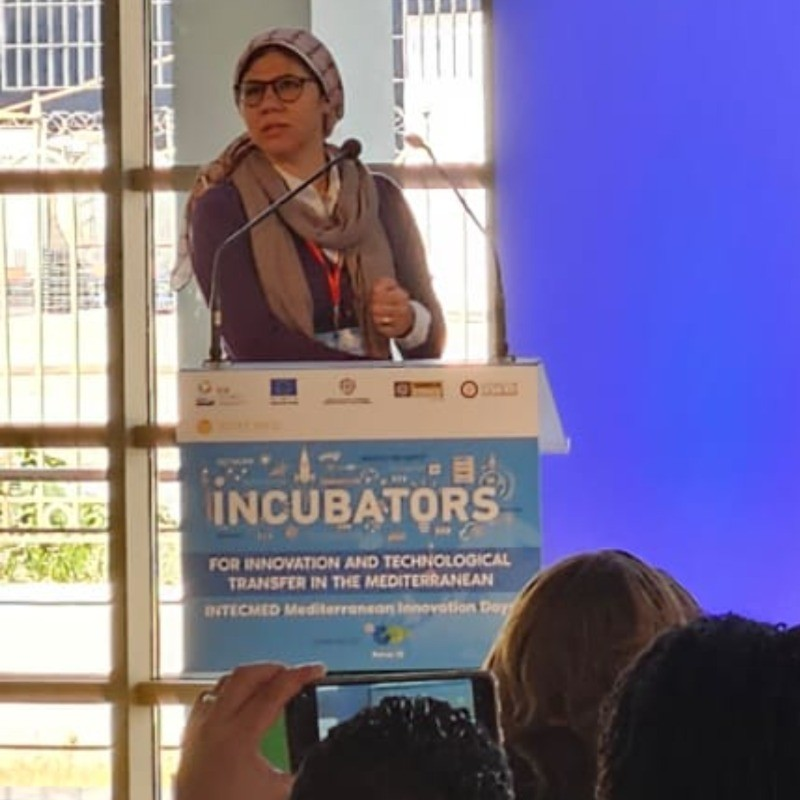
Backed by the world's leading investors

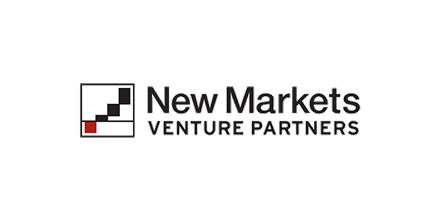


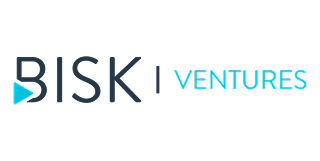



















Our story: Where it all began
Two entrepreneurs shared a belief: that lack of education is the root cause of most world’s challenges. They started asking themselves simple but powerful questions – why is it that less than 10% of the world holds a college degree? And why does high-quality education remain out of reach for so many people across the globe?
They discovered that student debt in the US was approaching $2 trillion – and that over the last 50 years, college tuition had increased by more than 1,400%, while median wages had grown by just 17%. It didn’t add up.
Looking across Asia and Africa, where populations are growing rapidly, one truth became obvious: online education is the only way to meet future demand – and do so in a way that makes quality education truly accessible.
They were determined to build something that could drive real, positive social impact. The original goal wasn’t necessarily to launch a university – it was to rethink higher education entirely. That meant starting at the root: speaking directly with learners.
From high school students in Texas, to remote call center workers in the Philippines, to aspiring entrepreneurs in Africa – they asked one question: why do you go to university, and what do you hope to get out of it?
At the same time, they asked faculty and university administrators around the world a similar question: why do universities exist?
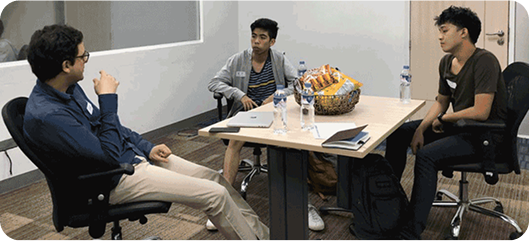
Entrepreneurial duo Fadl Al Tarzi and Mo Rayes saw a fundamental disconnect between the “buyer” and the “seller.”
Students pursue university as a means to an end – a stepping stone to a job. But faculty and administrators often view it as a place to simply “impart knowledge” – what students do with it is up to them.
They questioned everything. Do universities even need to exist anymore? Could a better, more modern form of education replace them entirely?
They explored building an entirely different model – but the data told a clear story: degrees still matter. In the US alone, bachelor’s degree holders earn 75% more on average than those with only a high school diploma. Globally, degrees remain a powerful signal of competence and opportunity.
With no legacy systems holding them back, the co-founders hired top firms – IPSOS, Huron, and Cooley – to help design a university that actually works. They studied the wins and failures of traditional institutions, listened to learners and employers, and built Nexford based on what today’s world actually needs.
Investors backed the vision. So did a team of experienced faculty and industry experts – all ready to challenge the status quo.

The team knew that to call themselves a university in the US, they’d need to earn it – by going through a rigorous licensing process approved by the US Department of Education. In 2019, Nexford secured licensure from the Higher Education Licensure Commission (HELC) in Washington, DC.
Nexford made a bold case: the world doesn’t need more traditional universities – it needs a better model. One that offers affordable, debt-free education. One that lets learners graduate faster if they’re ready. And one that teaches real skills – based on employer needs, not faculty opinions.
The HELC commission unanimously approved Nexford’s application.
From day one, Nexford’s curriculum design has been driven by data – not tradition. It starts with a clear understanding of the skills employers actually want. Using over 30 million data points and advanced Natural Language Processing, Nexford built programs aligned with real-world demand.
But it’s not just about teaching skills – it’s about how progress is measured. At Nexford, mastery of skills is the metric. Not time spent in class. Unlike traditional universities that use credit hours to track advancement, Nexford learners move forward when they demonstrate they’ve mastered the competencies needed for the workplace.
This approach – called backward design – starts with the outcomes that matter most and builds the learning experience in reverse. It ensures every course delivers career-relevant results, and every learner graduates ready to make an impact.

Just four years after launch, Nexford proved that a new kind of university could deliver quality education with real outcomes – fast. That track record led to accreditation by the Distance Education Accrediting Commission (DEAC) – a major milestone in our journey.
By 2023, Nexford had already graduated over 3,000 learners – we've been told thats more than any other new US university in such a short period. And it wasn’t just about volume. According to alumni surveys, 92% of graduates reported positive career outcomes – including promotions, new jobs, or launching their own ventures.
We showed the world that high-quality, workplace-relevant education doesn’t require massive tuition or lifelong debt. No more choosing between practical skills and a degree – at Nexford, learners get both.
With accreditation secured, we expanded our programs and began forging articulation partnerships across the US and around the world.

Two entrepreneurs shared a belief: that lack of education is the root cause of most world’s challenges. They started asking themselves simple but powerful questions – why is it that less than 10% of the world holds a college degree? And why does high-quality education remain out of reach for so many people across the globe?
They discovered that student debt in the US was approaching $2 trillion – and that over the last 50 years, college tuition had increased by more than 1,400%, while median wages had grown by just 17%. It didn’t add up.
Looking across Asia and Africa, where populations are growing rapidly, one truth became obvious: online education is the only way to meet future demand – and do so in a way that makes quality education truly accessible.
They were determined to build something that could drive real, positive social impact. The original goal wasn’t necessarily to launch a university – it was to rethink higher education entirely. That meant starting at the root: speaking directly with learners.
From high school students in Texas, to remote call center workers in the Philippines, to aspiring entrepreneurs in Africa – they asked one question: why do you go to university, and what do you hope to get out of it?
At the same time, they asked faculty and university administrators around the world a similar question: why do universities exist?

Entrepreneurial duo Fadl Al Tarzi and Mo Rayes saw a fundamental disconnect between the “buyer” and the “seller.”
Students pursue university as a means to an end – a stepping stone to a job. But faculty and administrators often view it as a place to simply “impart knowledge” – what students do with it is up to them.
They questioned everything. Do universities even need to exist anymore? Could a better, more modern form of education replace them entirely?
They explored building an entirely different model – but the data told a clear story: degrees still matter. In the US alone, bachelor’s degree holders earn 75% more on average than those with only a high school diploma. Globally, degrees remain a powerful signal of competence and opportunity.
With no legacy systems holding them back, the co-founders hired top firms – IPSOS, Huron, and Cooley – to help design a university that actually works. They studied the wins and failures of traditional institutions, listened to learners and employers, and built Nexford based on what today’s world actually needs.
Investors backed the vision. So did a team of experienced faculty and industry experts – all ready to challenge the status quo.

The team knew that to call themselves a university in the US, they’d need to earn it – by going through a rigorous licensing process approved by the US Department of Education. In 2019, Nexford secured licensure from the Higher Education Licensure Commission (HELC) in Washington, DC.
Nexford made a bold case: the world doesn’t need more traditional universities – it needs a better model. One that offers affordable, debt-free education. One that lets learners graduate faster if they’re ready. And one that teaches real skills – based on employer needs, not faculty opinions.
The HELC commission unanimously approved Nexford’s application.
From day one, Nexford’s curriculum design has been driven by data – not tradition. It starts with a clear understanding of the skills employers actually want. Using over 30 million data points and advanced Natural Language Processing, Nexford built programs aligned with real-world demand.
But it’s not just about teaching skills – it’s about how progress is measured. At Nexford, mastery of skills is the metric. Not time spent in class. Unlike traditional universities that use credit hours to track advancement, Nexford learners move forward when they demonstrate they’ve mastered the competencies needed for the workplace.
This approach – called backward design – starts with the outcomes that matter most and builds the learning experience in reverse. It ensures every course delivers career-relevant results, and every learner graduates ready to make an impact.

Just four years after launch, Nexford proved that a new kind of university could deliver quality education with real outcomes – fast. That track record led to accreditation by the Distance Education Accrediting Commission (DEAC) – a major milestone in our journey.
By 2023, Nexford had already graduated over 3,000 learners – we've been told thats more than any other new US university in such a short period. And it wasn’t just about volume. According to alumni surveys, 92% of graduates reported positive career outcomes – including promotions, new jobs, or launching their own ventures.
We showed the world that high-quality, workplace-relevant education doesn’t require massive tuition or lifelong debt. No more choosing between practical skills and a degree – at Nexford, learners get both.
With accreditation secured, we expanded our programs and began forging articulation partnerships across the US and around the world.

